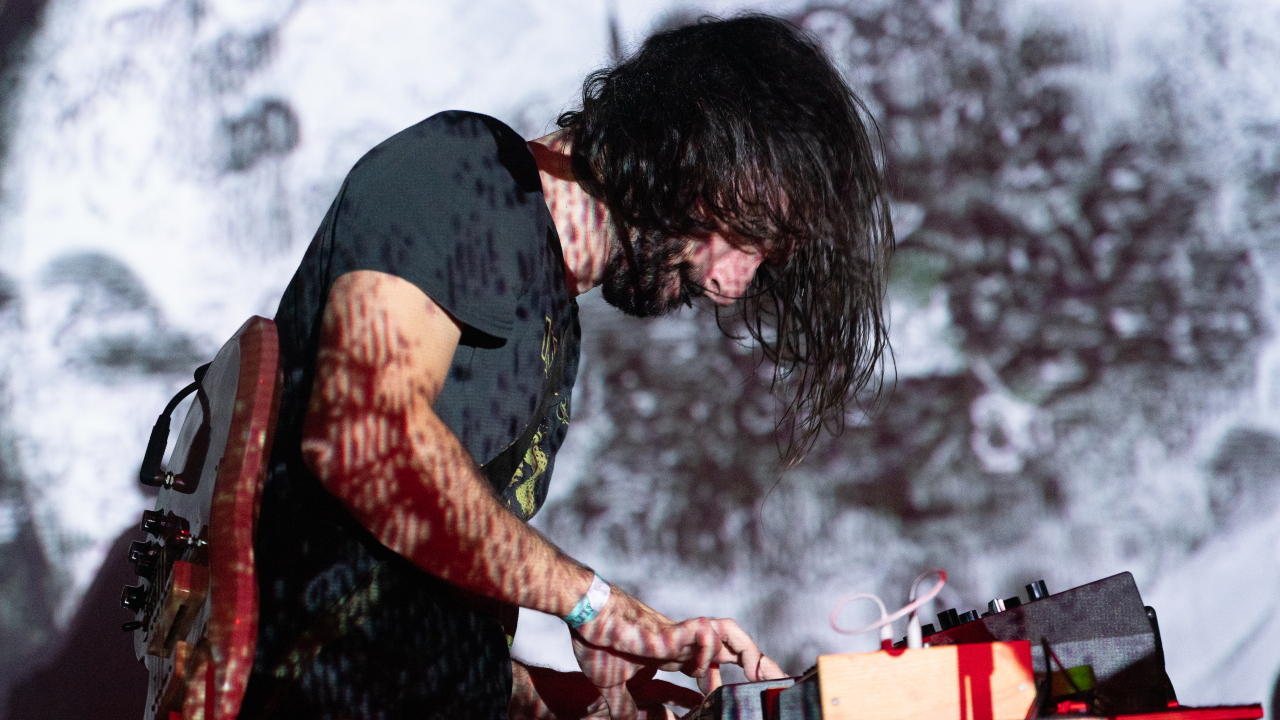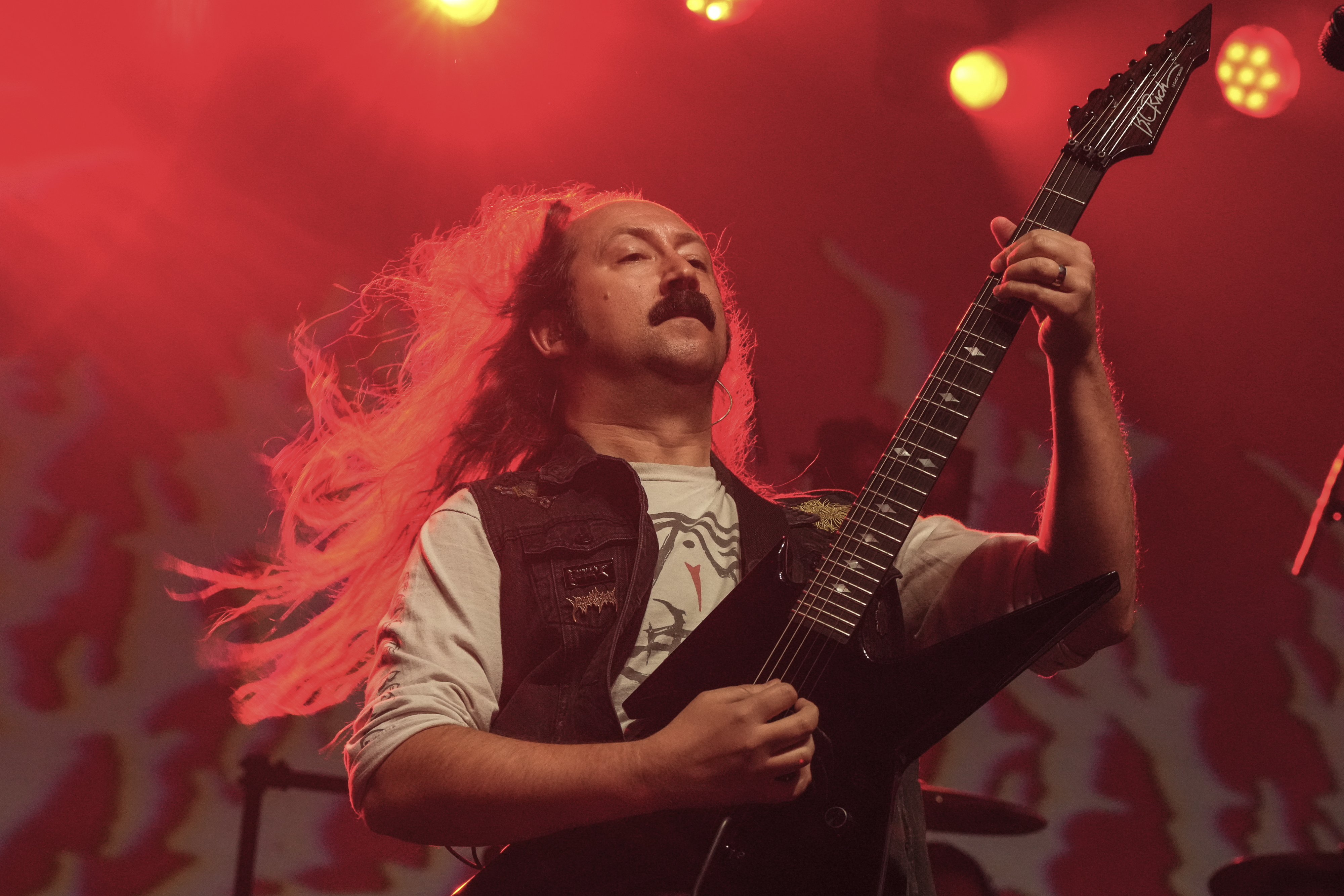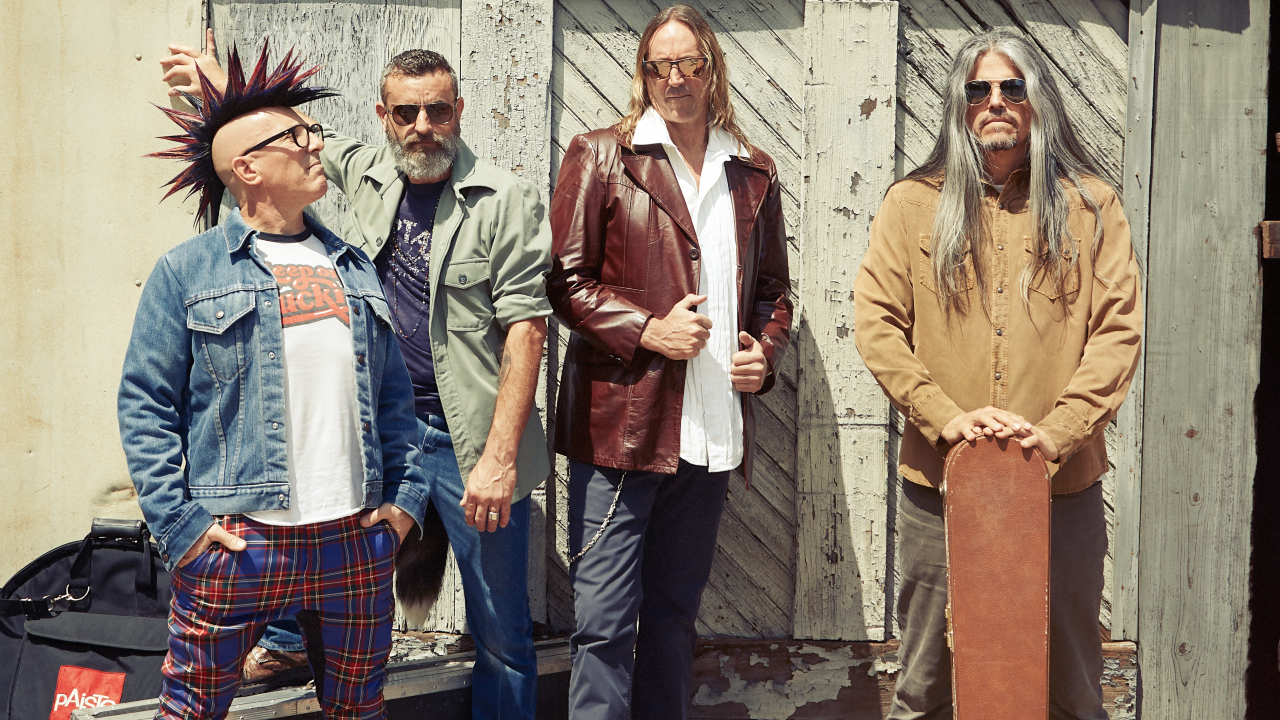“People like Elon Musk are looking towards Mars, but I think we have issues to look at here first”: Why is heavy metal so obsessed with space all of a sudden?
From Blood Incantation to Dvne, Slift and Psychonaut, there’s been an influx of rising bands fascinated by the outer reaches. We blast off into the space metal scene to find out why.

Select the newsletters you’d like to receive. Then, add your email to sign up.
You are now subscribed
Your newsletter sign-up was successful
Want to add more newsletters?

Every Friday
Louder
Louder’s weekly newsletter is jam-packed with the team’s personal highlights from the last seven days, including features, breaking news, reviews and tons of juicy exclusives from the world of alternative music.

Every Friday
Classic Rock
The Classic Rock newsletter is an essential read for the discerning rock fan. Every week we bring you the news, reviews and the very best features and interviews from our extensive archive. Written by rock fans for rock fans.

Every Friday
Metal Hammer
For the last four decades Metal Hammer has been the world’s greatest metal magazine. Created by metalheads for metalheads, ‘Hammer takes you behind the scenes, closer to the action, and nearer to the bands that you love the most.

Every Friday
Prog
The Prog newsletter brings you the very best of Prog Magazine and our website, every Friday. We'll deliver you the very latest news from the Prog universe, informative features and archive material from Prog’s impressive vault.
For as long as human beings have been around, we’ve been intrigued by space. Philosopher Immanuel Kant stated more than 200 years ago that, in its vastness and mystery, space is something that the mind can project whatever it wants onto – and we’ve proved him right. Horoscopes are centred around stars and planets, the 1969 moon landings were a century-defining event, and franchises like Star Trek and Star Wars are among the biggest in media.
Space has always been there, but in recent years, the heavy metal underground has taken particular notice of it. Blood Incantation’s 2024 cosmic odyssey Absolute Elsewhere was their breakthrough effort (not to mention Metal Hammer’s album of the year). French psych-metal trio Slift have similarly blown up, fascinating audiences with their wormhole-like songs and onstage video projections that resemble the title sequence of Doctor Who. Dvne, named after Frank Herbert’s seminal sci-fi text, are the UK’s leading post-metal hotshots.
And that’s just the tip of the asteroid. Canadian death metal explorers Tomb Mold, mysterious synth-rock duo Zetra, post-rockers Mountain Caller, prog metal up-and-comers Psychonaut and many other mind-bending bands more have released albums adorned with alien landscapes and full of the jangling keyboards and mellotrons of a B-movie soundtrack. Even veteran artists are in on it, stoner rockers Orange Goblin’s 2024 swansong being the space-faring Science, Not Fiction and Avenged Sevenfold having tapped the outer reaches for 2016’s The Stage and 2023’s Life Is But A Dream.
“It’s an incredible and wonderful thing to see bands latching on to this kind of subject matter,” says Alexander Milas, former Metal Hammer editor and founder of Space Rocks: an organisation that celebrates space’s influence on the arts. “And I should say, it’s not just metal. Steven Wilson did an entire record called The Overview [earlier this year]: a two-track, 42-minute record about the scale of the universe. I think that artists as a whole are waking up to the kind of creative possibilities that space can represent, because it is ceaselessly fascinating.”
In fact, it isn’t just the arts. Remember how sick we all were of news stories about billionaires rocketing into space in the early 2020s? Katy Perry’s flight to the edge of the outer limits this April was seen as an attempt to rehab her image following last year’s maligned 143 album, and Elon Musk’s mission to get humanity to Mars is his most famous trait. But, this doesn’t answer our core question as much as it elevates it: why is this uptick happening?
Dvne’s founder, guitarist and vocalist Victor Vicart isn’t afraid to get political when he tackles the subject. “There is no planet B,” he says, referring to the climate crisis, exacerbated by humans, that threatens every ecosystem on Earth. “People like Elon Musk are looking towards Mars and taking mankind to these places, but I think we have issues to look at here first.”
For his band, space is a useful tool for commenting on these earthly matters. “What is crazy is that we haven’t fixed any of the main issues we have here and we’re already looking to go to other places,” he continues. “We’re just going to end up doing the same stuff elsewhere! All of our albums are about the same civilisation in different eras. They leave their planet because they fucked it up. They’re in space and, several million years later, they go back to their home planet. They end up doing the same thing again!”
Sign up below to get the latest from Metal Hammer, plus exclusive special offers, direct to your inbox!
“The environmental movement is inextricably linked to space,” Milas observes. “It was that first full picture of the Earth hanging in the void that inspired Earth Day. It catalysed the environmental movement. Now, as these issues become more and more prevalent, I think those interact with music in a really important way.”
Dvne aren’t the only band to use space for such incisive purposes. Avenged’s The Stage, which had a whole planetary system on the front, dealt with existentialism and human nature through a sci-fi lens. Similarly, the lyrics on Tomb Mold’s 2019 album Planetary Clairvoyance used space to talk about personal fears, with the song Infinite Resurrection being about some kind of cosmic purgatory.
“I guess that’s how people feel when they grow old and something happens to them and they’re on life support,” guitarist Derrick Vella explained to Bandcamp. “They’re like, ‘I can’t do anything. Being alive is worse than being dead.’ Stuff like that freaks me out.”
For others, it’s simpler than that. Slift wield the topic for escapism. “When you are a child, space is synonymous with adventure and wonder,” singer/guitarist Jean Fossat told Gimmiezine in 2020. “Growing up, what I find cool is that it’s probably endless.”

Meanwhile, Blood Incantation found their intergalactic niche through a hell of a lot of psychedelic drugs. “We’ve played shows on mushrooms in the past, and we’ll trip at practise occasionally – microdose and stuff,” singer/guitarist Paul Riedl told Hammer last year. “But 15 years ago, I’d spend weeks on end on acid. I no longer need to trip to access that mindset. I’m still so spaced out, I can just think about it and I’m there.”
Milas backs up the role that hallucinogenics play in pulling people towards the otherworldly. “When [game-changing sci-fi film] 2001: A Space Odyssey came out in 1968, it was a bit of a flop,” he says. “But what happened was that a load of hippies and dropouts started turning up to the movie. So, the studio re-released and re-marketed the film as a bit of a psychedelic trip. It’s in the posters from the re-release: the tagline is, ‘Take a trip.’”
Not-so-coincidentally, psychedelic drug use is currently at a record high (no pun intended). In 2022, Monitoring The Future found that more American people were using psychedelics than at any point since the study’s beginnings in 1975. Science mag New Atlas attributed the rise to broad media coverage of the potential therapeutic effects of drugs like psilocybin.
It’s also impossible to ignore the age-old trend of the 20-year cycle. In the early 70s, spaced-out genres like space rock, krautrock and kosmiche music peaked, led by the likes of Hawkwind and Tangerine Dream. There was then a revival in the mid-to-late 90s, thanks to Tool, Sleep, Failure, Ozric Tentacles, Spiritualized and others. Cosmic rock music was overdue a comeback.
“We were into music that was psychedelic and stoner, and then Mastodon and stuff like that,” says Vicart, unpicking Dvne’s musical DNA. “It just felt like the songs were big and long and that they had a story to tell: the first stuff that came to our mind was space in general. Space is a good, fertile ground that matches that music.”
Heavy music’s love affair with space in the 2020s is the result of a perfect storm: politics, culture, substance trends and nostalgia for the expansive music of old coalescing into something special. Where it will end, no one can say, but right now the space metal world is making incredible music that more and more people are falling for. That should be treasured for all its worth, while we can.

Louder’s resident Gojira obsessive was still at uni when he joined the team in 2017. Since then, Matt’s become a regular in Metal Hammer and Prog, at his happiest when interviewing the most forward-thinking artists heavy music can muster. He’s got bylines in The Guardian, The Telegraph, The Independent, NME and many others, too. When he’s not writing, you’ll probably find him skydiving, scuba diving or coasteering.
You must confirm your public display name before commenting
Please logout and then login again, you will then be prompted to enter your display name.

